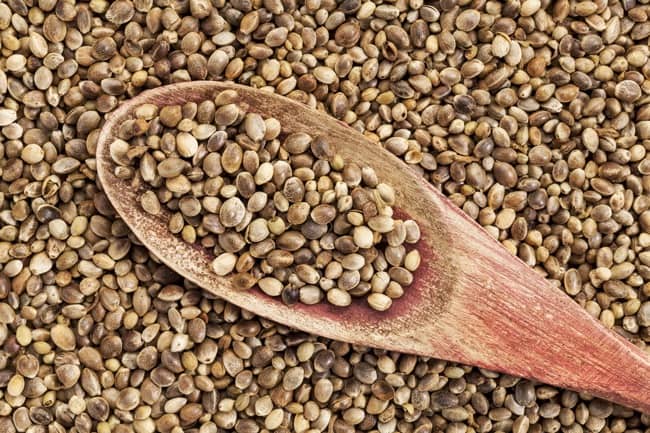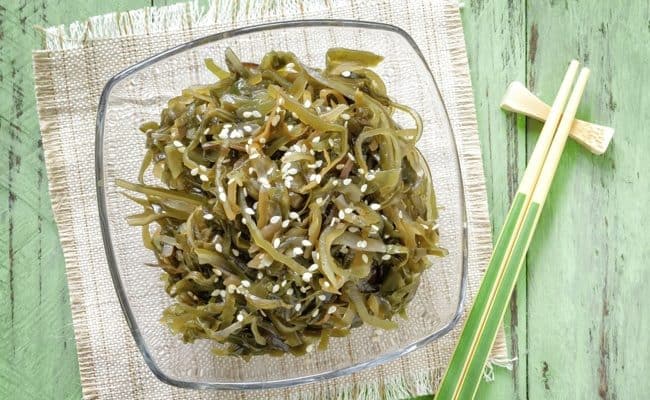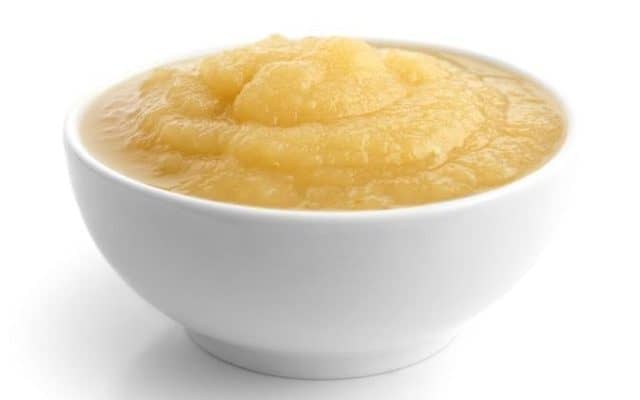
Even though hemp seeds have been used for thousands of years to treat various health conditions, there is not a lot of scientific research on the health benefits of hemp. Hemp seeds, Cannabis sativa L, are in the same family as marijuana. However, the active compounds in marijuana, THC, is in very small amounts in hemp seeds, and eating even very large amounts of hemp seeds has not been shown to cause any psychological effects.
Despite this, there still remains some controversy for using or growing hemp products.
Hemp seeds contain all essential amino acids and have been shown to be a quality vegan source of protein. They are also a rich source of essential fatty acids, antioxidants, vitamins and minerals.
The full benefit of hemp seeds are still being studied, but so far research studies suggest hemp seeds have a lot to offer.
Quality vegetarian protein source
Animal based proteins contain high levels of all essential amino acids and for this reason are considered complete proteins. Plant based proteins usually are low in at least one essential amino acid, but eating a variety of plant based foods can still provide all essential amino acids.
Hemp protein is considered a quality protein source because it is relatively high in all essential amino acids.
A 2010 study (1) looking at over 30 samples of hemp products concluded the protein digestibility score for hemp seed products equal to or greater than other vegetarian sources of protein.
Because of this, hemp seed products, like hemp protein powder, can be a common protein source for vegetarians.
Eating hemp seeds as a snack or part of a meal can also provide protein; a 1 ounce serving provides 10 grams of protein (2).
Unlike other seeds, hemp seeds are fairly soft and somewhat chewy. They can be eaten plain or as a topping for salads, hot or cold cereals, smoothies, yogurt, stir fries or used in baked goods.
Balanced ratio of omega 6 and omega 3’s
The essential fatty acids humans need to get from food are omega 3 and 6. They have opposing effects and the body, and when they are out of balance it can cause negative side effects.
Omega 3 works to lower inflammation and reduce blood clotting. Omega 6 can increase inflammation and increase blood clotting. The body is designed to use both of these fatty acids to balance these processes.
Most people eating a typical Western diet high in processed foods get a high amount of omega 6 and low amounts of omega 3.
To combat this, it is recommended to eat foods higher in omega 3s. Hemp seeds are a natural source of omega 6 and 3, and what is special about them is that they provide omega 6 and 3 in a balanced amount.
The ratio for omega 6 to 3 in hemp seeds is 2:1 or 3:1, respectively which is the ratio that is considered optimal for health (4).
Antioxidants
All nuts and seeds are a rich source for antioxidants, and hemp seeds are no exception. A 2011 in vitro study (5) found hemp seed protein to be a potent source of antioxidants, and hemp seed protein hydrolysate could be a potential source for treatment of oxidative stress related diseases.
Mineral source
Hemp seeds are a rich source for many minerals that some Americans may have a hard time reaching the recommended intake on.
A 1 ounce serving of hemp seeds provides about 15% Daily Value (DV) for iron, 48% DV of magnesium and 23% DV for zinc (6). This is especially important for vegetarians which may have a harder time getting enough iron or zinc in their diet.
Adding hemp seeds to your diet could really help you reach the recommended intake of magnesium.
Most Americans do not reach the daily recommended intake for magnesium, and a serving of hemp seeds provides almost half the recommended daily intake.
Is there need to be concerned about any effect from THC?
Are there any side effects of eating hemp seeds?
Eating hemp seeds, even in large quantities, won’t have any psychological effects for most people. However, some people who are sensitive to THC may develop THC metabolites in their urine after eating hemp products, similarly seen in smoking marijuana (7).
If you have any questions about if eating hemp seeds may affect your mental or physical health, speak with your health care provider.
Hemp seed interactions with medications
If you are on any medication, speak with your doctor before adding hemp products to your diet. Hemp could interfere with anticoagulants, and there could be unknown interactions with other medications or supplements.
Caution should be used if you have any issues with blood clotting or excess bleeding.
Digestive tract side effects
Besides minerals, antioxidants, protein and omega fatty acids, hemp seeds also contain fiber.
As with any other fibrous food, drastically increasing your fiber intake could cause some discomfort. Potential side effects of adding hemp seeds or other hemp products could include loose stools or flatulence.
Conclusion
Hemp seeds are packed with nutritional benefits: a quality vegetarian protein source, a healthy balance of omega 6 and omega 3 fatty acids, high in iron, magnesium and zinc. They are a versatile food because they have a mild flavor and soft texture.
Research has also shown hemp seed could be a high source for antioxidants and may have a role in helping lower oxidative stress, although more research is needed in humans.
If you are on anticoagulants, eating hemp products may interfere with medication. There are possible other unknown interactions with other medications, so talk with your doctor if you are on medication and are wanting to add hemp to your diet.
Most people feel no psychological effect from hemp seeds, but there is a slight chance people who have a heightened sensitivity to THC may experience some effect similar to marijuana from hemp products.










